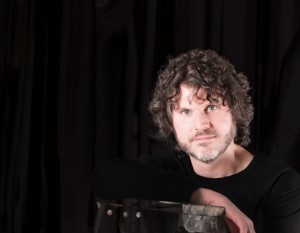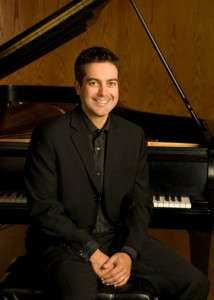NOVA CHAMBER MUSIC SERIES, Libby Gardner Concert Hall, University of Utah, Feb. 9; additional performance 5:30 p.m. Feb. 13, Madsen Recital Hall, Harris Fine Arts Center, Brigham Young University, free
Jason Eckardt is a composer who has a lot to say. And he says it in music that is intense and intricately woven. The complexity of his scores isn’t because he is trying to show how clever he is, but because that’s how he hears things. In a lesser composer that can seem vacuous, but there is a lot of substance in Eckardt’s music. And surprisinsingly, the density of his works doesn’t come across as intimidating — he writes with clarity and articulation that allows listeners to hear the different levels at play in his music.
The 42-year-old composer is the current Abravanel Distinguished Visiting Composer. Three of his works were played at Sunday’s NOVA Chamber Music Series concert, including the premiere of a NOVA commission.
The first half of the program included Eckardt’s Cuts and Echoes’ White Veil, both for solo piano. NOVA artistic director Jason Hardink, an ardent Eckardt proponent, played the two pieces with polish, nuanced articulation and refined artistry.
The two are diametric opposites. Cuts has an improvisatory feel to it, with quick and frequent shifts in dynamics, attacks and expressions. Echoes’ White Veil, on the other hand, is a tour de force piece with bravura writing in which the pianist’s technique is sorely tested.
And Hardink excelled in both. He brought finely crafted expressiveness to the former, while bringing passion and impeccable technical virtuosity to his account of the latter.
After intermission, Hardink was joined by violinists Hasse Borup and Alexander Woods; violist Brant Bayless; and cellist Noriko Kishi for the world premiere performance of Eckardt’s pulse-echo.
Written in a manner that could be described as pointillistic, since each instrument must work together with the others to create a whole, pulse-echo demands incredible precision from the players to achieve cohesiveness and a unity of purpose. The five musicians played with remarkably refined articulation, delving into the score to bring out the details that define the work. It was a virtuosic performance that was vibrant, dynamic and infinitely engaging.
Rounding out the program were two late works by Beethoven, the Piano Sonata in E major, op. 109, and the Grosse Fuge, op. 133.
Hardink gave a wonderfully lyrical account of the sonata that brought out the expressiveness of the opening movement, the fiery determination of the march-like second movement and the expansiveness of the variation finale.
For the Grosse Fuge, the quartet (Borup, Woods, Bayless and Kishi) infused its playing with passion, emotional involvement and a broad palette of expressions. It was wonderfully formulated and executed and brought clarity and remarkable eloquence to the music.
As an encore, the four gave a poetic reading of the Cavatina from the Quartet in B flat major, op. 130.


